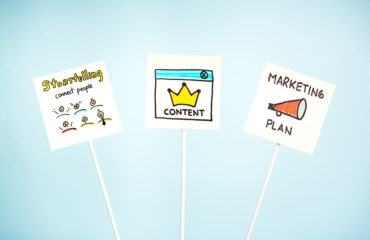Personalization Builds Connections: What You Should Know About Customer Relationship Management (CRM)
What is your organization’s most valuable asset when it comes to making customers feel valued? Associations may say it’s resources for their members, retailers may say location, tech companies might think it’s their latest product, and many organizations would say it’s their great management team, and dedicated staff. It’s true all of these things are important to getting more customers. But what about the customers you already have? At a time when nearly 70% of people say they stop doing business with a brand because they feel neglected, what just may be your most valuable asset is good customer relationship management.
Customer Relationship Management (CRM) 101: The Basics
Customer relationship management – or CRM – is a business strategy designed to:
- Improve customer service
- Increase customer satisfaction
- Manage existing customers
- Gain new quality customers
All of which increase customer loyalty and profitability. At its most basic, CRM works by gathering information about your customers and then analyzing the data in order to give you an accurate idea of how to best create and deliver value to them. A successful CRM system is made up of a number of ingredients including marketing, analytics, workflow automation, and customer care.
Loyal customers are the backbone of your business, so maintaining a good relationship with them is vital. It isn’t enough to just hope for the best, or think your products or services will speak for themselves. Here are the most common features all good CRM software systems have:
- Customer Contact Details that make up the foundation for all customer communication. Collected information lets you view all past customer interactions as well as new ones tied to the system. This means customer activity (such as items downloaded from your site, newsletter sign-ups, etc.) is visible to you and the ability to close sales is enhanced.
- Lead Scoring that lets your sales team contact the most likely leads first and then nurture those less sure.
- A Customizable Dashboard that gives an at-a-glance view of marketing, sales, and customer satisfaction. You can track inbound leads, number of service call resolves, etc.
- Task Management for delegating tasks and projects to specific employees or teams, including follow-through until close.
- Quoting, Help Desk, and Invoicing Tools which make it easier to fully integrate all departmental tasks.
- Click-to-Call Functionality that cuts down on the time spent dialing, making employees more productive.
Why Your Organization Needs CRM
A good customer relationship management system is imperative to successful marketing campaigns, sales cycles, and brand identity. Research shows that satisfied customers are born when you provide an excellent customer experience. In fact, happy customers have been shown to buy and pay more. So what’s in a CRM for you?
- Instead of the traditional historical view of revenue, CRM lets you look at future sales trends and events that are leading indicators of your revenue and profit metrics.
- CRM lets you acquire leads from multiple channels, such as your website, email campaigns, trade shows, and webinars. It also helps you identify new product or market opportunities, and improves the calling efficiency of your sales team.
- A CRM system can be used to replicate best sales and customer services practices. Templates can be created and workflow automation can be used by your sales team to automate activities to ensure best practices are consistently followed.
- Your employees are able to handle an ever-increasing number of tasks, reducing the risk of dropping the ball with customers when it comes to service.
- Building customer intimacy allows you to tailor products and services to fit a particular customer’s needs, an extremely effective way to compete in an ever-crowded landscape.
The Bottom Line
Customer relationship management makes your business more efficient and increases revenue. If you want to compete in a multi-channel customer environment, a CRM system will allow you capture your customers’ interest so you can better market and sell to them. Ultimately, it helps you improve customer service, which improves customer satisfaction. And maintaining a positive relationship with your customers is the key to success.







